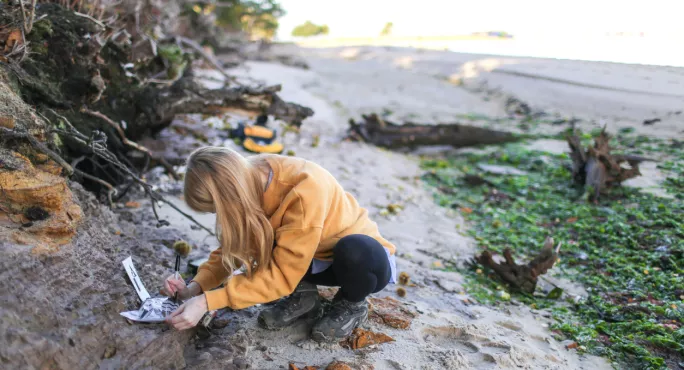GCSE and A-level students could see changes to coursework and fieldwork activities for some subjects under proposals unveiled by England’s exams regulator.
Ofqual has launched a two-week consultation on plans to alter non-exam assessment for students due to take their GCSE and A-level exams in the summer of next year to address disruption caused by the pandemic.
The watchdog is proposing removing the mandatory requirement for geography, geology and environmental science students to undertake a prescribed number of days of fieldwork.
Related: Scrapping of geography GCSE fieldwork ‘ham-fisted’
GCSEs 2021: New geography requirements ‘absurd’
Comment: ‘Geography fieldwork must be saved’
Ofqual’s consultation focuses on the subjects for which preparation and work for coursework, practicals and fieldwork activities will be taking place this term for students taking their exams in summer 2022.
GCSEs and A levels 2022: Proposals to change geography fieldwork requirements
It comes after adaptations were announced for non-exam assessment in subjects this year - and the regulator is now proposing to carry forward the majority of changes for students taking exams next year.
The consultation says: “The extent to which public health restrictions will continue, or might need to be reintroduced or strengthened, in the next academic year is not yet certain.
“However, some subject requirements, particularly those that require group activities or the use of specific pieces of equipment, could be more difficult for students to undertake and for teachers to supervise if restrictions such as social distancing continue.”
But for modern foreign languages (MFL) GCSEs, Ofqual hopes oral tests will go ahead in the normal way.
Last year, the watchdog announced that the assessment of spoken language would be removed from the calculation of the overall qualification result for GCSE MFL students due to take exams this summer.
Ofqual said: “In our consultation on the arrangements for students taking exams in 2021, teachers’ responses to our proposed MFL changes expressed concern that students’ achievements in oral skills would not count towards the final grade and that they would therefore wish to see a return to the usual arrangements as soon as possible.
“We agree that it is preferable to revert to the assessment of spoken language as part of the overall qualification grade as soon as possible. We currently anticipate that it will be possible to conduct speaking assessments in the normal way in 2022.”
The watchdog said decisions on whether GCSE history and English literature students will be assessed on less content than usual will be considered as part of the wider policy decisions for the 2022 exams.
Paul Whiteman, general secretary of the school leaders’ union the NAHT, said: “For assessment in 2022, it appears sensible to start from where we got to for 2021 following last year’s consultations when exams were planned to go ahead.
“The flexibilities and adaptations planned should definitely be in place for next year.
“However, the context for exams and assessments in 2022 has changed significantly. We now know the extent of the disruption to teaching and learning that students have experienced this academic year.
“Students taking exams and assessments in 2022 have faced two years of disruption and no one can predict what will happen in the next 12 months.
“Adaptations must be made to exams and assessments, and these must be in place for the start of the autumn term. There also must be a clear ‘plan B’ in place.
“School leaders, teachers and students need clarity and certainty.”





